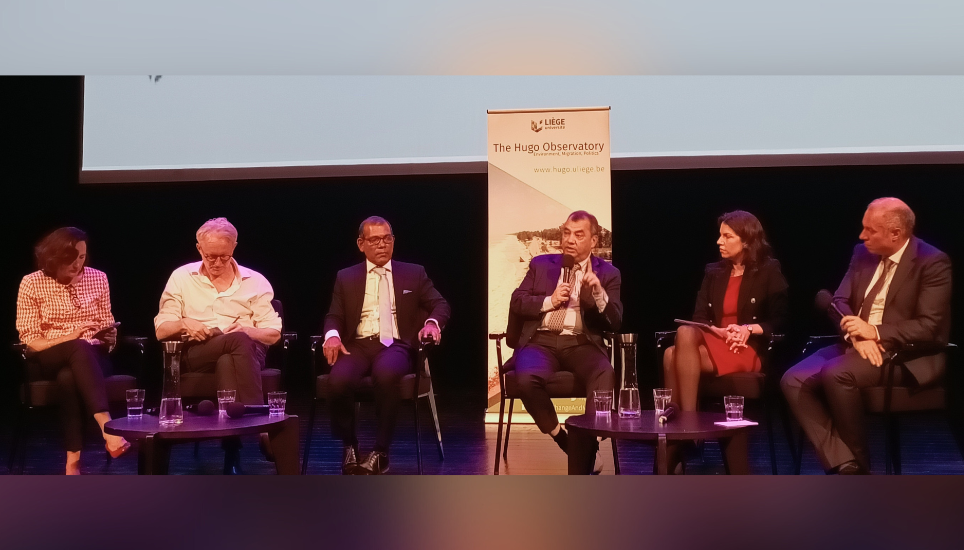
The EU shares similar understanding and views with Bangladesh on the possible calamities that can be induced by climate change and the need to act urgently, said European Commissioner for Climate Action Wopke Hoekstra.
He made the remark during a meeting with the Minister for Environment, Forest and Climate Change Saber Hossain Chowdhury in Brussels on Tuesday, read a press release.
The two sides discussed the various climate related platforms on which Bangladesh and the EU are cooperating closely. Terming Bangladesh as the “voice of reason,” the commissioner highly appreciated the proactive role being played by Bangladesh in international negotiations.
Saber Hossain Chowdhury on his part recalled the sustained support of the EU towards Bangladesh and the time-tested relationship enjoyed by both sides over more than 50 years.
The EU commissioner also stressed that the industry and private sector was an important player in addressing the challenges at hand. Both expressed agreements to continue the close cooperation in the forthcoming Conference of the parties in Colombia, Baku and Riyadh.
Minister Saber invited the EU commissioner to visit Bangladesh soon, particularly to see in person the successful adaptation strategies that have been put in place by Bangladesh.
In the afternoon, the minister participated as a panelist in the opening session of the Second Conference of the Environment and Climate Mobilities Network (ECMN) being held in the city of Liege.

During the panel discussion titled “Colonising the future: Climate justice, democracy and migration governance” the panelists highlighted the North South divide, the need for more meaningful measures in tackling climate change, rebuilding trust and a fairer, more democratic and inclusive international governance.
Sharing the stage with the Secretary General of the Climate Vulnerable Forum and former President of the Maldives Mohamed Nasheed, Bangladesh Minister highlighted the steps taken by Bangladesh under the leadership of Prime Minister Sheikh Hasina to deal with climate change threats.
He underlined that climate change is an existential threat for Bangladesh as it is predicted that 17 per cent of coastal area could be submerged by sea level rise by the end of the century and 40 million people could be displaced by a one-meter rise in sea level.
While elaborating and emphasising the issue of climate justice, he cited that Bangladesh is one of the least contributors to global carbon emissions at 0.5 per cent, yet it is one of the most climate vulnerable countries in the world.
Bangladesh’s frontline role in COP negotiations, particularly on loss and damage, were appreciated by the panelists.
The panelists also spoke about the need for reforming the global financial and governing mechanisms, with Saber stressing that climate change is a litmus test for multilateralism.
Moderated by the Belgian Political Scientist and Researcher Francois Gemenne, the panel considered and discussed the keynote presentation made by historian and author David Van Reybrouck.
Also among the panelists were Sandrine Dixson-Decleve, co-president of the Club of Rome and Executive Director of Earth 4All and Katarina Csefalvayova, Director of the Institute for Central Europe.
During his engagements, Saber Hossain Chowdhury was accompanied by Bangladesh Ambassador to Belgium, Luxembourg and Head of Mission to the EU Mahbub Hassan Saleh and other Embassy officials.
The minister is on a two-day visit to Belgium to participate in the Second Conference of the ECMN (Environment & Climate Mobilities Network) before proceeding to New York to participate in the High-Level Political Forum on Sustainable Development (HLPF).